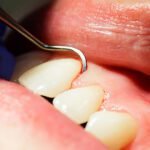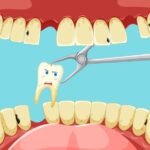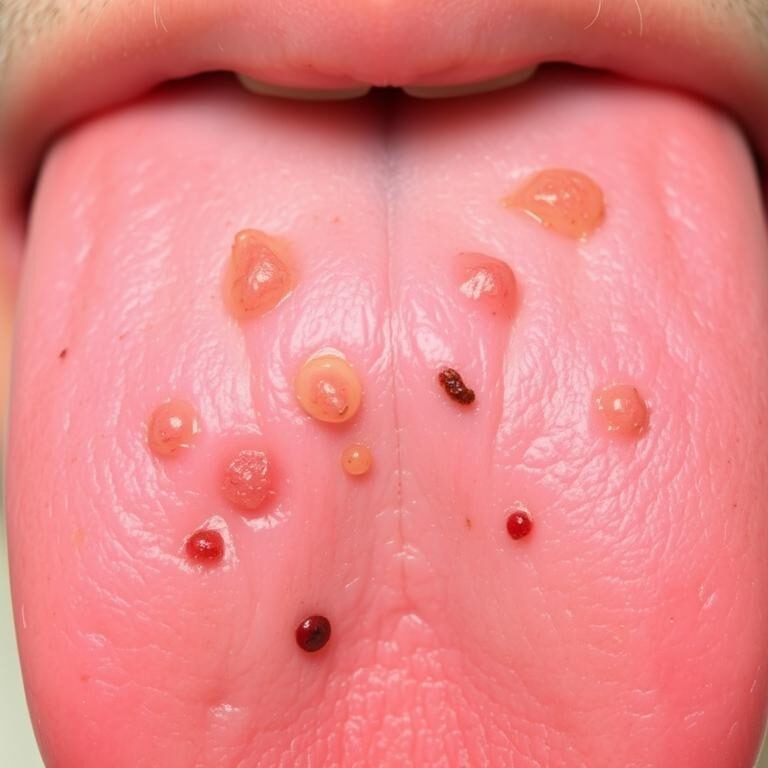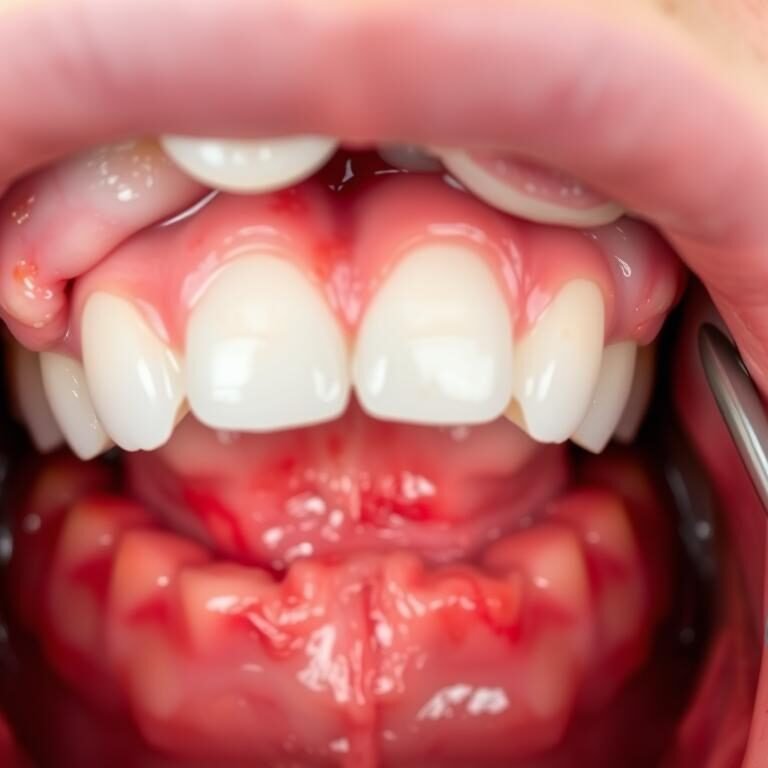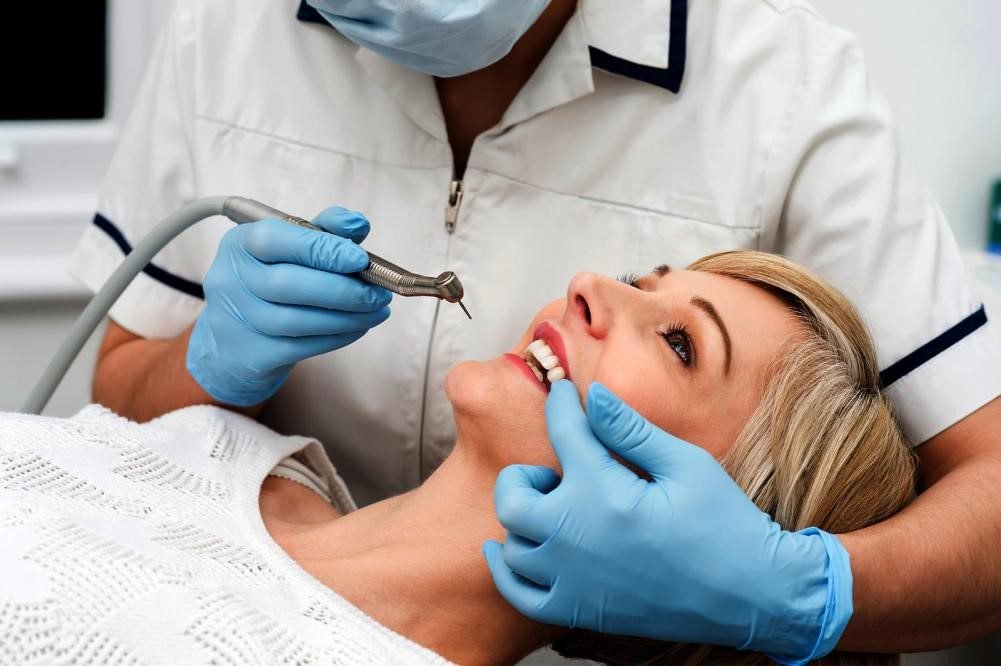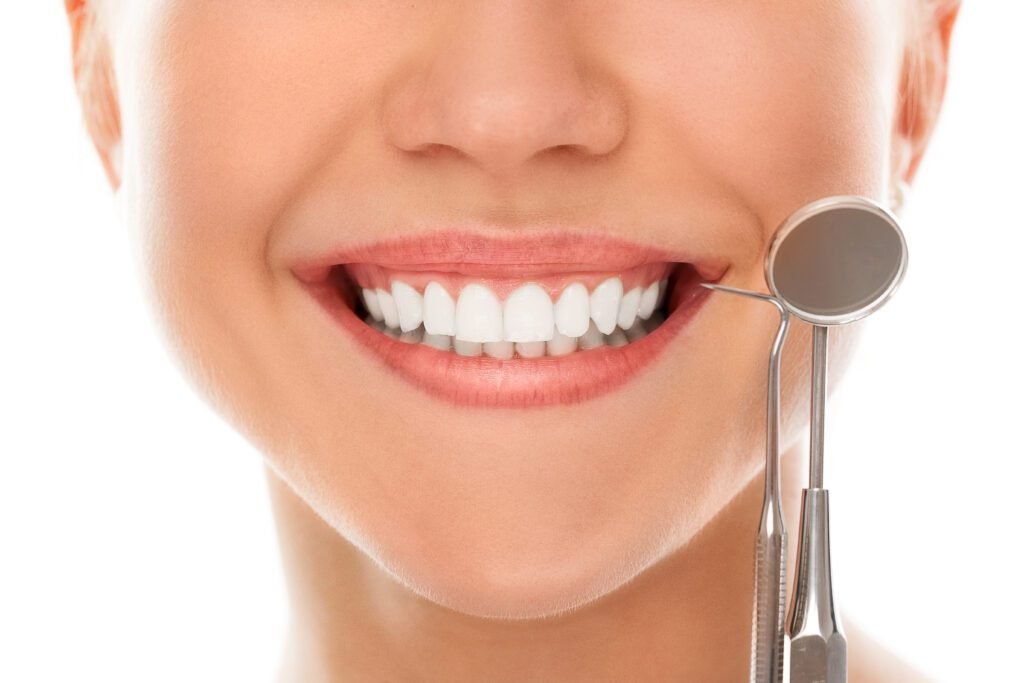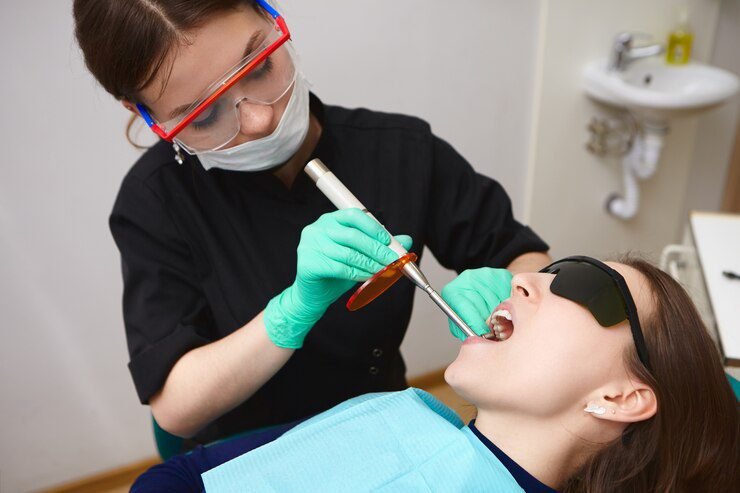Table of Contents
Common Causes of Bleeding Gums
One of the common causes of bleeding gums is gingivitis, which is a mild form of gum disease. Gingivitis occurs due to the buildup of plaque – a sticky film of bacteria that forms on your teeth. When plaque is not adequately removed by regular brushing and flossing, it can irritate the gums, leading to inflammation, redness, and bleeding.
| Cause | Description |
|---|---|
| Gingivitis | Inflammation of the gums caused by plaque buildup along the gumline. |
| Periodontitis | Advanced gum disease characterized by inflammation and infection of the gums and bone loss. |
| Poor Oral Hygiene | Inadequate brushing and flossing allow plaque to accumulate, leading to gum inflammation. |
| Trauma | Aggressive brushing, flossing, or biting into hard foods can injure gum tissue, causing bleeding. |
| Medications | Some medications, such as blood thinners or antiplatelet drugs, can increase bleeding risk. |
| Hormonal Changes | Hormonal fluctuations during pregnancy or menstruation can lead to gum sensitivity and bleeding. |
| Nutritional Deficiencies | Lack of essential nutrients like vitamin C or vitamin K can weaken gum tissue and cause bleeding. |
| Systemic Diseases | Conditions like diabetes, leukemia, or autoimmune diseases may manifest as bleeding gums. |
| Smoking | Tobacco use can impair blood flow to the gums, making them more prone to bleeding. |
| Stress | Chronic stress weakens the immune system, making gums more susceptible to inflammation and bleeding. |
| Misaligned or Ill-Fitting Dental Appliances | Braces, dentures, or dental appliances that don’t fit properly can irritate the gums and cause bleeding. |
Another prevalent cause of bleeding gums is improper brushing or flossing technique. Brushing too hard or using a toothbrush with hard bristles can injure the delicate gum tissue, causing it to bleed. Similarly, neglecting to floss regularly can result in the accumulation of plaque between the teeth, further aggravating gum health. It is essential to use a gentle brushing technique and opt for a soft-bristled toothbrush to avoid causing trauma to the gums and prevent bleeding.
Signs and Symptoms of Gum Disease
Gum disease, also known as periodontal disease, often starts with subtle signs that can easily be overlooked. One of the initial symptoms is experiencing bleeding gums during brushing or flossing. This bleeding is a common indicator of inflammation and infection in the gums, commonly caused by the buildup of plaque and bacteria along the gumline. Persistent bad breath, also known as halitosis, can be another telltale sign of gum disease. The foul odor is typically a result of the bacteria thriving in the pockets formed between the teeth and gums.

As gum disease progresses, individuals may notice their gums becoming swollen, red, and tender to the touch. Receding gums, wherein the gum tissue pulls back from the teeth, exposing more of the tooth roots, can also be a significant symptom of advanced gum disease. In some cases, individuals may experience shifting or loose teeth, changes in their bite alignment, or even the formation of pus between the teeth and gums. These symptoms indicate a more severe form of gum disease that requires immediate attention from a dental professional.
Effect of Poor Oral Hygiene on Gum Health
Poor oral hygiene can have detrimental effects on gum health, leading to conditions such as gingivitis and periodontitis. When proper oral care practices are neglected, plaque and bacteria can accumulate along the gumline, causing inflammation and irritation. This can result in symptoms such as bleeding gums, redness, swelling, and bad breath. Over time, if left untreated, these conditions can progress to more severe forms of gum disease, impacting the overall health of the gums and supporting structures of the teeth.
In addition to causing gum disease, poor oral hygiene can also contribute to a host of other systemic health issues. Research has shown that the bacteria present in gum disease can enter the bloodstream and travel to other parts of the body, potentially increasing the risk of conditions such as heart disease, diabetes, respiratory infections, and complications during pregnancy. Therefore, maintaining good oral hygiene practices, including regular brushing, flossing, and dental check-ups, is crucial not only for the health of the gums but also for the overall well-being of an individual.
Role of Genetics in Gum Health

Genetics play a significant role in determining an individual’s susceptibility to gum diseases. Research has shown that certain genetic variations can influence how the immune system responds to bacteria in the mouth, making some individuals more prone to gum inflammation and bleeding. These genetic factors can impact the body’s ability to fight off periodontal pathogens, leading to an increased risk of developing gum disease.
Understanding the genetic component of gum health is crucial in personalized dental care. By identifying patients who may be genetically predisposed to gum issues, dentists can tailor treatment plans to address their specific needs. Through genetic testing and analysis, dental professionals can provide targeted interventions to help prevent and manage gum diseases effectively. Ultimately, recognizing the role of genetics in gum health can lead to more precise and efficient oral care strategies for individuals at higher risk of developing periodontal problems.
Impact of Medications on Gum Health
Medications play a significant role in our overall health, but their impact on gum health is often overlooked. Certain medications can have adverse effects on the gums, leading to issues such as gum inflammation, bleeding, and even gum disease. For instance, some medications, like anticoagulants and antiplatelet agents, can increase the risk of gum bleeding by affecting the blood’s ability to clot efficiently. It is crucial for patients to be aware of these potential side effects and to communicate with their healthcare providers, including dentists, about any medication they are taking to address and mitigate potential oral health concerns.
Moreover, some medications may also cause dry mouth as a side effect, which can lead to an imbalance in oral bacteria and an increased risk of gum disease. Saliva plays a crucial role in maintaining oral health by continuously washing away food particles and bacteria, thus reducing the risk of gum inflammation and infection. Patients experiencing dry mouth should discuss potential solutions with their healthcare providers, as maintaining adequate saliva production is essential for preserving gum health and overall oral well-being.
Importance of Regular Dental Check-ups
Regular dental check-ups are an essential aspect of maintaining optimal gum health. These routine visits allow dentists to assess the condition of your gums, identify any signs of gum disease or other oral health issues early on, and provide timely interventions to prevent further complications. Through professional examinations, dentists can detect issues that may not be visible to the untrained eye, such as early-stage gum disease or gingivitis.
Furthermore, regular dental check-ups offer an opportunity for thorough professional cleanings, which help remove plaque and tartar buildup that can contribute to gum inflammation and bleeding. Dental professionals can also provide personalized oral hygiene recommendations, including proper brushing and flossing techniques, as well as suggest specific oral care products tailored to your needs. By committing to regular dental check-ups, you are proactively investing in the long-term health of your gums and overall oral health.
Treatment Options for Bleeding Gums
Bleeding gums can be a concerning symptom that should not be ignored, as it can be an indication of underlying gum disease. When faced with bleeding gums, seeking treatment options is crucial to prevent further damage to oral health. One effective treatment option is to improve oral hygiene practices, such as brushing and flossing regularly to remove plaque and bacteria that contribute to gum inflammation. Additionally, using an antiseptic mouthwash can help reduce bacteria levels in the mouth, promoting gum health.
In more advanced cases of gum disease, professional treatments may be necessary to address the underlying issues causing bleeding gums. Scaling and root planing, also known as deep cleaning, can help remove plaque and tartar buildup below the gumline. In severe cases, surgical interventions like gum flap surgery or gum grafts may be required to restore gum health. Seeking timely treatment for bleeding gums can help prevent gum disease progression and maintain overall oral health.
| Treatment Option | Description |
|---|---|
| Improved Oral Hygiene | Brushing teeth twice a day, flossing daily, and using an antiseptic mouthwash to remove plaque and bacteria from the gumline. |
| Professional Dental Cleaning | Scaling and root planing performed by a dentist or dental hygienist to remove plaque and tartar buildup from above and below the gumline. |
| Antibacterial Mouthwash | Rinse with an antibacterial mouthwash to reduce bacterial growth and inflammation in the gums. |
| Prescription Antimicrobial Agents | Dentist may prescribe antimicrobial mouth rinses or gels to control bacterial infections and reduce inflammation. |
| Scaling and Root Planing | Deep cleaning procedure to remove plaque and tartar from below the gumline and smooth out rough spots on tooth roots. |
| Dental Procedures | Gum graft surgery to replace lost gum tissue, periodontal flap surgery to reduce pocket depths, or laser therapy to remove diseased tissue. |
| Lifestyle Changes | Quit smoking, manage stress, eat a balanced diet rich in vitamins and minerals, and maintain overall good health to support gum health. |
| Medication Adjustment | Review and adjust medications that may contribute to bleeding gums, such as blood thinners. |
| Regular Dental Checkups | Schedule regular dental exams and cleanings to monitor gum health and address any issues early on. |
Benefits of Using a Soft-bristled Toothbrush
Using a soft-bristled toothbrush offers several advantages when it comes to maintaining optimal oral health. The gentle bristles help to effectively remove plaque and debris from the teeth and gums without causing damage to the delicate gum tissue. This is particularly important for individuals with sensitive gums or those prone to gingivitis, as the soft bristles can clean the teeth thoroughly while minimizing the risk of causing irritation or inflammation.
Moreover, soft-bristled toothbrushes are recommended by dental professionals for children, older adults, and individuals with dental restorations such as crowns or dental implants. For children, soft bristles are essential to prevent potential damage to the developing teeth and gums, while older adults with age-related gum recession benefit from the gentle cleaning action. Similarly, individuals with dental restorations require a gentle brush to protect the integrity of their prosthetic teeth and prevent any damage to the surrounding gum tissue. Ultimately, using a soft-bristled toothbrush is a simple yet effective way to promote good oral hygiene and protect the overall health of your teeth and gums.
Proper Technique for Brushing and Flossing
Brushing and Flossing are fundamental components of maintaining optimal oral health. Proper brushing technique involves using a soft-bristled toothbrush with fluoride toothpaste in gentle, circular motions to effectively remove plaque and food debris. It is recommended to brush for at least two minutes, twice a day, ensuring all surfaces of the teeth are cleaned, including the gumline. Flossing should be done once a day to remove plaque and debris from between the teeth and along the gumline. Using a gentle back-and-forth motion, gently curve the floss around each tooth, making sure to reach below the gumline.

Effective brushing and flossing not only prevent cavities and gum disease but also promote overall health. Neglecting these oral hygiene practices can lead to an accumulation of plaque, which harbors harmful bacteria that can result in gum inflammation and bleeding. By adopting proper brushing and flossing techniques as part of a daily routine, individuals can significantly reduce the risk of gum disease and maintain healthy teeth and gums for a lifetime.
Role of Diet in Maintaining Healthy Gums
A well-balanced diet plays a crucial role in maintaining healthy gums. Foods rich in vitamins such as C and D, as well as minerals like calcium, are essential for gum health. Citrus fruits, leafy greens, dairy products, and lean proteins can help strengthen gums and reduce the risk of gum disease. Additionally, consuming foods high in antioxidants, such as berries and nuts, can help fight inflammation and promote gum health.

On the other hand, a diet high in sugars, processed foods, and acidic beverages can contribute to gum inflammation and bacterial growth, leading to gum disease. Sugary snacks and beverages can fuel harmful bacteria in the mouth, causing plaque buildup and eventually leading to gum problems. Maintaining a diet low in sugars and high in nutrient-dense foods is key to ensuring the health of your gums and overall oral health.
Connection Between Gum Health and Overall Health
Poor gum health is not just a localized issue within the mouth; it can have far-reaching implications for one’s overall health. Research has shown a clear connection between gum disease and various systemic conditions, such as cardiovascular diseases, diabetes, respiratory infections, and adverse pregnancy outcomes. The bacteria present in gum disease can enter the bloodstream and contribute to inflammation in other parts of the body, leading to a cascade of health problems if left unchecked.
Moreover, chronic inflammation in the gums can impact the immune system, making individuals more susceptible to infections and possibly exacerbating existing medical conditions. Maintaining good gum health through proper oral hygiene practices, regular dental check-ups, and a healthy lifestyle can play a crucial role in not only preserving the health of your teeth and gums but also in safeguarding your overall well-being. It highlights the importance of viewing oral health as an integral part of holistic healthcare, emphasizing the interconnectedness of the body’s various systems.
Preventive Measures to Avoid Gum Bleeding
To prevent gum bleeding, maintaining good oral hygiene is crucial. This includes brushing your teeth twice a day with a fluoride toothpaste and using proper technique to ensure effective plaque removal. Flossing daily is equally important to reach areas between teeth where a toothbrush cannot reach, preventing the buildup of plaque and bacteria. Additionally, using an antimicrobial mouthwash can help reduce bacteria in the mouth, further promoting gum health.
Regular dental check-ups are essential for early detection of any gum issues and to address them promptly. Professional cleanings help remove tartar buildup, which can lead to gum inflammation and bleeding if left untreated. Your dentist can also provide personalized advice on how to improve your oral care routine and recommend any necessary treatments or interventions to maintain optimal gum health.
Importance of Using Antiseptic Mouthwash
Antiseptic mouthwash plays a crucial role in maintaining optimal oral hygiene. This oral care product contains active ingredients that can help reduce bacteria in the mouth, ultimately controlling plaque buildup and preventing gum disease. By incorporating antiseptic mouthwash into your daily oral care routine, you can enhance the effectiveness of brushing and flossing, resulting in healthier gums and teeth. Regular use of antiseptic mouthwash can also help freshen breath and provide an added layer of protection against oral infections.
In addition to promoting gum health, antiseptic mouthwash can be especially beneficial for individuals with specific dental conditions or those undergoing certain dental procedures. For those with a higher risk of developing gum disease or experiencing oral infections, using antiseptic mouthwash can be a valuable tool in maintaining oral health. Furthermore, individuals who have recently undergone dental surgery or are wearing orthodontic appliances may benefit from the antiseptic properties of mouthwash in reducing the risk of complications and promoting faster healing.
Effect of Stress on Gum Health
Chronic stress can have a significant impact on gum health, as the body’s response to stress can weaken the immune system, making it harder to fight off gum infections. High levels of stress can lead to an increase in inflammation throughout the body, including in the gums, which can result in gum disease. Studies have shown that individuals experiencing high levels of stress are more likely to develop gum issues, such as bleeding gums, gingivitis, and periodontal disease.
Moreover, stress can also lead to harmful oral habits such as teeth grinding or clenching, which can put extra pressure on the gums and lead to gum recession and other oral health problems. Additionally, stress may contribute to a decrease in saliva production, which is essential for washing away food particles and bacteria that can cause gum disease. Managing stress through various techniques such as meditation, exercise, and seeking support from loved ones can not only benefit overall well-being but also help maintain healthy gums and oral health.
Professional Treatments for Severe Gum Disease
For individuals suffering from severe gum disease, professional treatments are essential to effectively address the condition and prevent further complications. One common treatment option is scaling and root planing, which involves deep cleaning of the teeth and roots to remove plaque and tartar buildup that contribute to gum inflammation. This procedure aims to reduce the pockets between the gums and teeth, allowing for better gum health and preventing the progression of the disease.
In more advanced cases of severe gum disease, surgical interventions may be necessary. Procedures like flap surgery and bone or tissue grafts can help repair damaged gum tissues and bone structure to restore oral health. These treatments are often performed by periodontists, who specialize in the prevention, diagnosis, and treatment of gum diseases, ensuring that patients receive the expert care needed to combat severe gum issues effectively.
What are some professional treatments available for severe gum disease?
Some professional treatments for severe gum disease include scaling and root planing, laser therapy, gum surgery, and antibiotic treatments.
How often should I schedule dental check-ups to monitor my gum health?
It is recommended to schedule dental check-ups at least twice a year to monitor your gum health and address any issues early on.
Can genetics play a role in the health of my gums?
Yes, genetics can play a role in the health of your gums. Some individuals may be more predisposed to gum disease due to their genetic makeup.
How can stress impact the health of my gums?
Stress can weaken the immune system, making it harder for the body to fight off gum infections. This can lead to an increased risk of gum disease and other oral health issues.
Is it important to use antiseptic mouthwash to maintain healthy gums?
Antiseptic mouthwash can help reduce bacteria in the mouth and prevent gum disease. It is a good addition to your oral hygiene routine, but should not be used as a substitute for brushing and flossing.
What role does diet play in maintaining healthy gums?
A healthy diet rich in vitamin C, antioxidants, and low in sugar can help support gum health. Eating a balanced diet can help reduce inflammation and prevent gum disease.
What are some preventive measures I can take to avoid gum bleeding?
Some preventive measures to avoid gum bleeding include practicing good oral hygiene, avoiding tobacco products, eating a balanced diet, and managing stress levels effectively.


